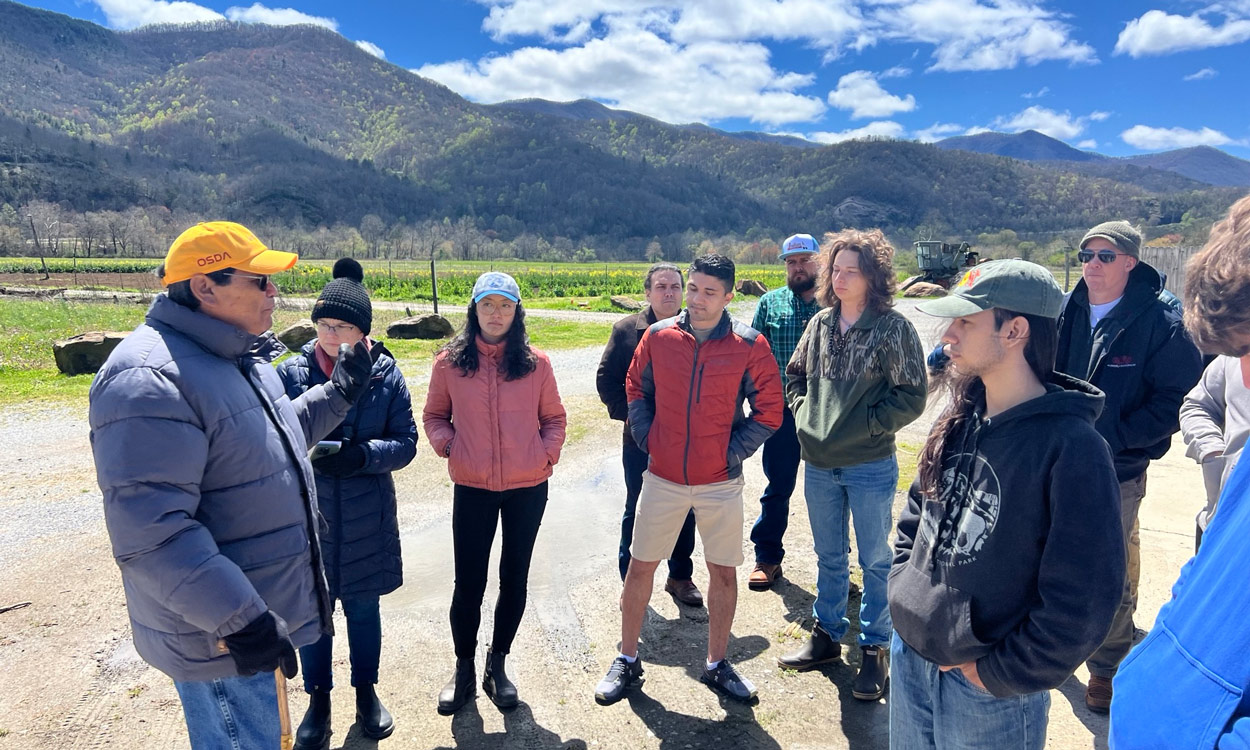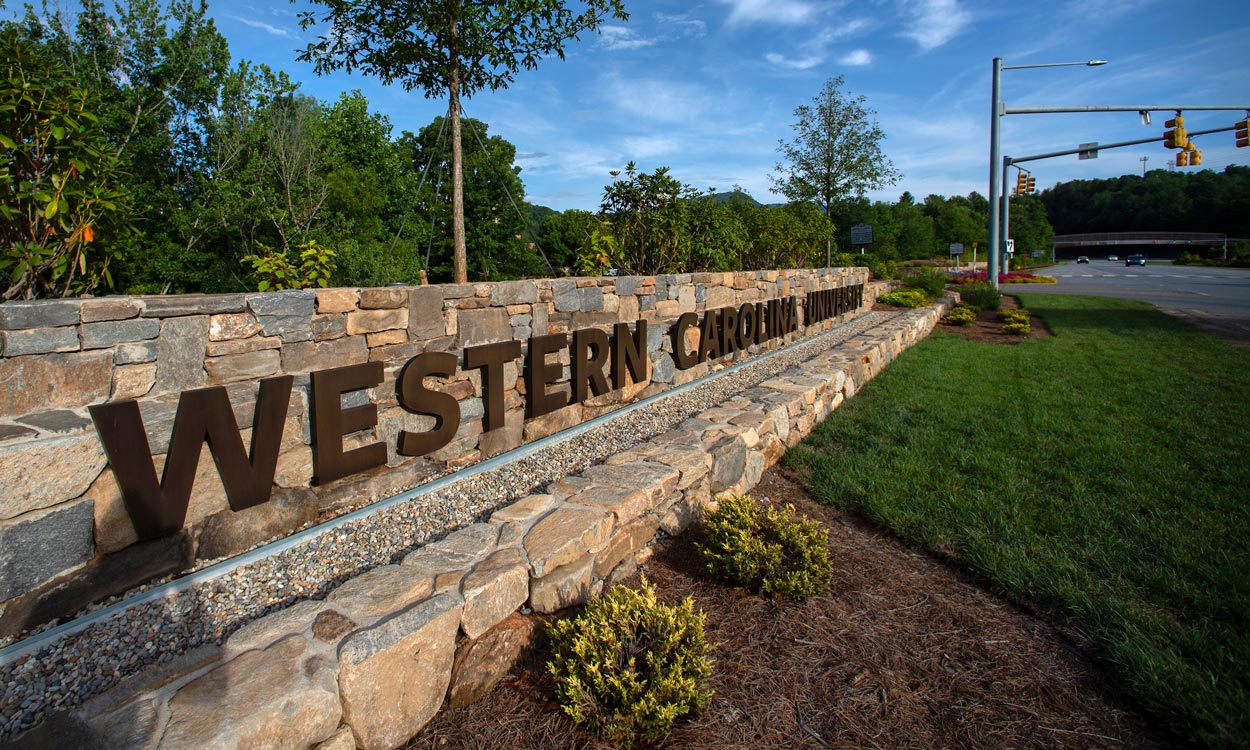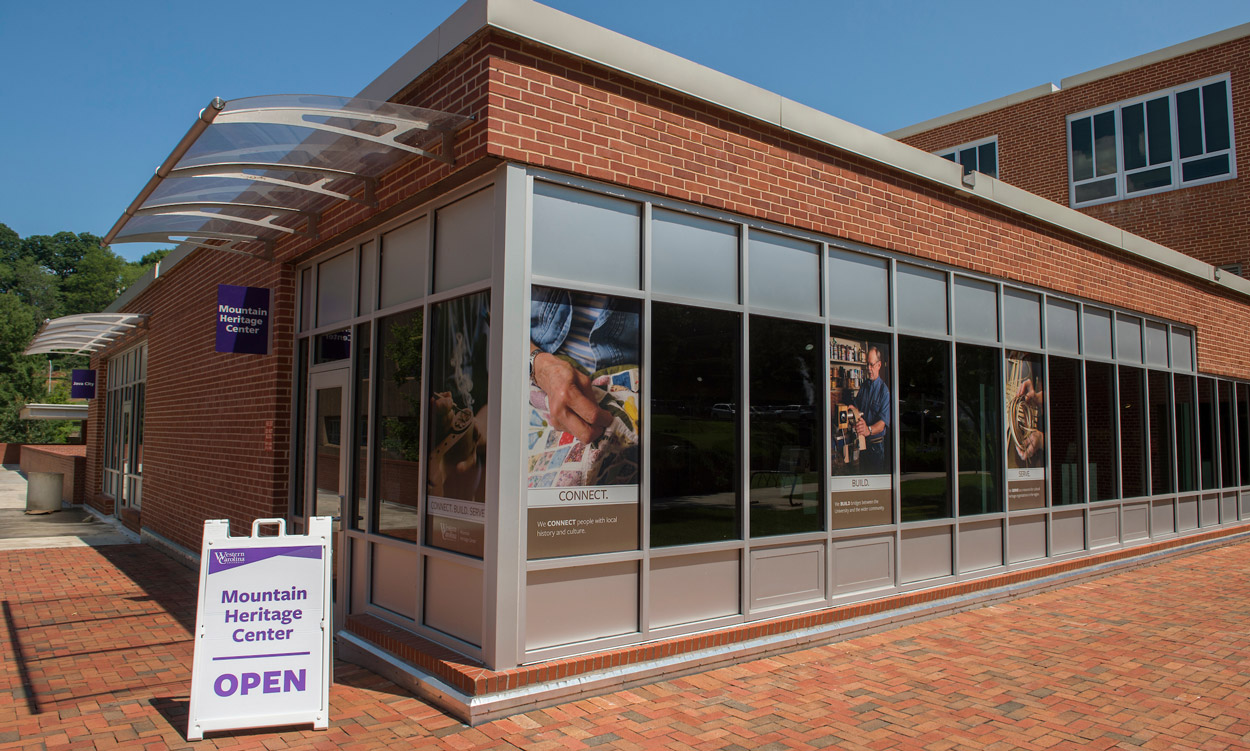Cherokee Studies Program works to revitalize language

By Chaz Lilly
As a member of the Eastern Band of Cherokee Indians, Mattilynn Sneed, a senior communication major, wanted to connect to her heritage in a deeper way. She wanted to learn the language.
Through the minor in Cherokee Studies, she’s taken courses on Cherokee archeology, history and language.
“I wasn’t raised traditionally,” Sneed said. “I feel sometimes like a bit of an outsider because I don’t know all the intricacies of culture that come from knowing the language. But I’ve been encouraged by faculty and the community to reconnect with my roots.”
For those like Sneed who want to learn more about Cherokee language, Western Carolina University offers resources beyond the classroom. Recently, the annual Cherokee Language Summit brought together students and educators from multiple universities and tribal programs to discuss Cherokee language education and revitalization.
During the fifth annual Summit, attendees had the opportunity to visit important Cherokee cultural sites, watch and discuss relevant films, attend a spring social, and network and learn from a diverse group of peers.
“The summit this year was a great showcase of the work the Cherokee language program is doing in partnership with the Eastern Band,” said Andrew Denson, director of WCU’s Cherokee Studies program. “For us at Western, it’s a true privilege to share in the work of Cherokee language education. It was wonderful to see many of our Indigenous students participating in the summit and to welcome back Eastern Band alumni of WCU who are now taking leading roles in language education.”
Some highlights from the two-day event included a trip to the local Native American landmark Judaculla Rock, an ancient soapstone boulder covered in petroglyphs.
The summit also included a showing of the film Dadiwonisi, or “We Will Speak.” The 2023 feature-length documentary chronicles the efforts of Cherokee activists, artists and educators fighting to save the Cherokee language.
The Summit wrapped up with a visit to Kituwah, the original Cherokee settlement, also known as the “Cherokee Mother Town.” Kituwah is recognized as the place of origin for the Cherokee people, dating back some 10,000 years ago. Kituwah Mound, a ceremonial site, sits at was the center of the village.
“We’re thankful for the Cherokee Preservation Foundation who provided funding for many our initiatives and have helped incentivize student participation through their support,” said Sara Snyder Hopkins, director of the Cherokee Language Program.
Hopkins announced at the summit that, thanks to continued growth, the program will offer a Cherokee language minor starting fall 2024.
“We’ve added two upper-level language classes, bringing the total to eight language classes. These classes, ‘Advanced Cherokee Conversation’ and ‘Cherokee Language Transcription and Translation’ are taught by our faculty in partnership with several first-language Cherokee speakers who work with our program,” Hopkins said.
In addition to the minor, WCU is also developing a non-credit Cherokee Language certificate program for the public.

